Can Singaporeans reverse ageing? Longevity clinics think so
With life expectancy soaring, a new wave of longevity facilities is offering everything from biomarker testing to oxygen therapy. But can they really turn back the clock?


AS A country, Singapore has frequently reinvented itself – so why shouldn’t its people? At 53 years of age, Lim Tiat has done just that, working out and eating consciously such that biomarker tests put his biological age at around 32 – a staggering 21 years younger than his chronological age.
As the co-founder of Bespoke Fitness, a boutique gym-clinic that fuses high-intensity training with clinical health monitoring, Lim has become one of the faces of Singapore’s growing longevity movement.
Born in 1972, Lim’s transformation is not the result of experimental treatments or anti-ageing infusions but a rigorous, disciplined lifestyle. “The goal is not to live forever,” he says. “It’s to make sure my health span (the years lived in good health) equals my lifespan (the length of my life). I basically want to be healthy until the day I die.”
Bespoke Fitness is just one of several players in Singapore’s longevity sector, a rapidly expanding industry that mixes science, technology, and personal optimisation in a bid to slow – or even reverse – the effects of ageing.
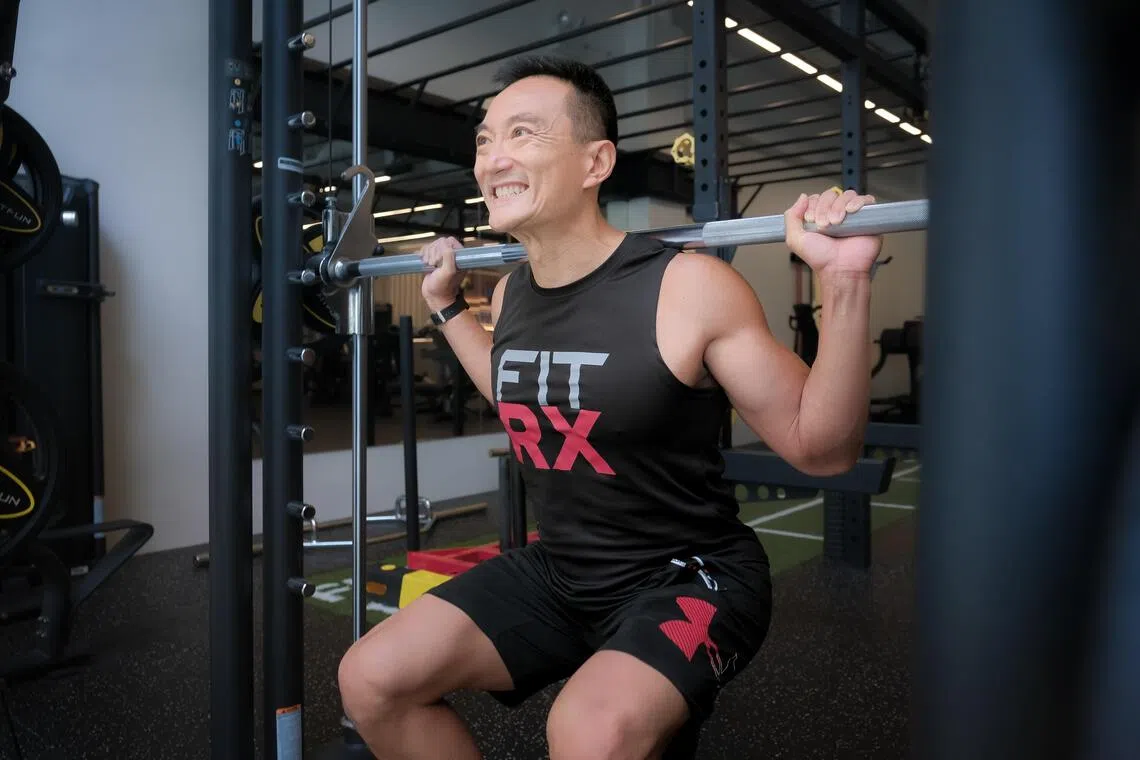
Globally, the industry is booming, spurred by billionaires such as Bryan Johnson and Jeff Bezos, who are pouring fortunes into de-ageing research – and Singapore is fast becoming a key hub. This week alone, there are two major events exploring longevity, including the Founders Longevity Forum at W Singapore featuring global clinicians, academics and investors.
Burgeoning scene
Singapore’s longevity drive received a boost in late-2023 with the opening of the Healthy Longevity Clinic at Alexandra Hospital, the first such public-sector facility in the world. It offers tests such as blood, epigenetics and gut microbiota at lower-than-market prices to develop individualised health plans that help one stay healthy for longer.
Navigate Asia in
a new global order
Get the insights delivered to your inbox.
But, with a minimum waiting time of 12 months due to what the clinic calls a “high volume of appointment requests”, several private players are entering the market to fill the gap.
One early establishment is the two-year-old longevity clinic Chi Longevity. It not only expanded recently to include a new space at Four Seasons Hotel Singapore, it also acquired Sparkd, a longevity gym that integrates medical diagnostics with cognitive and physical fitness interventions.
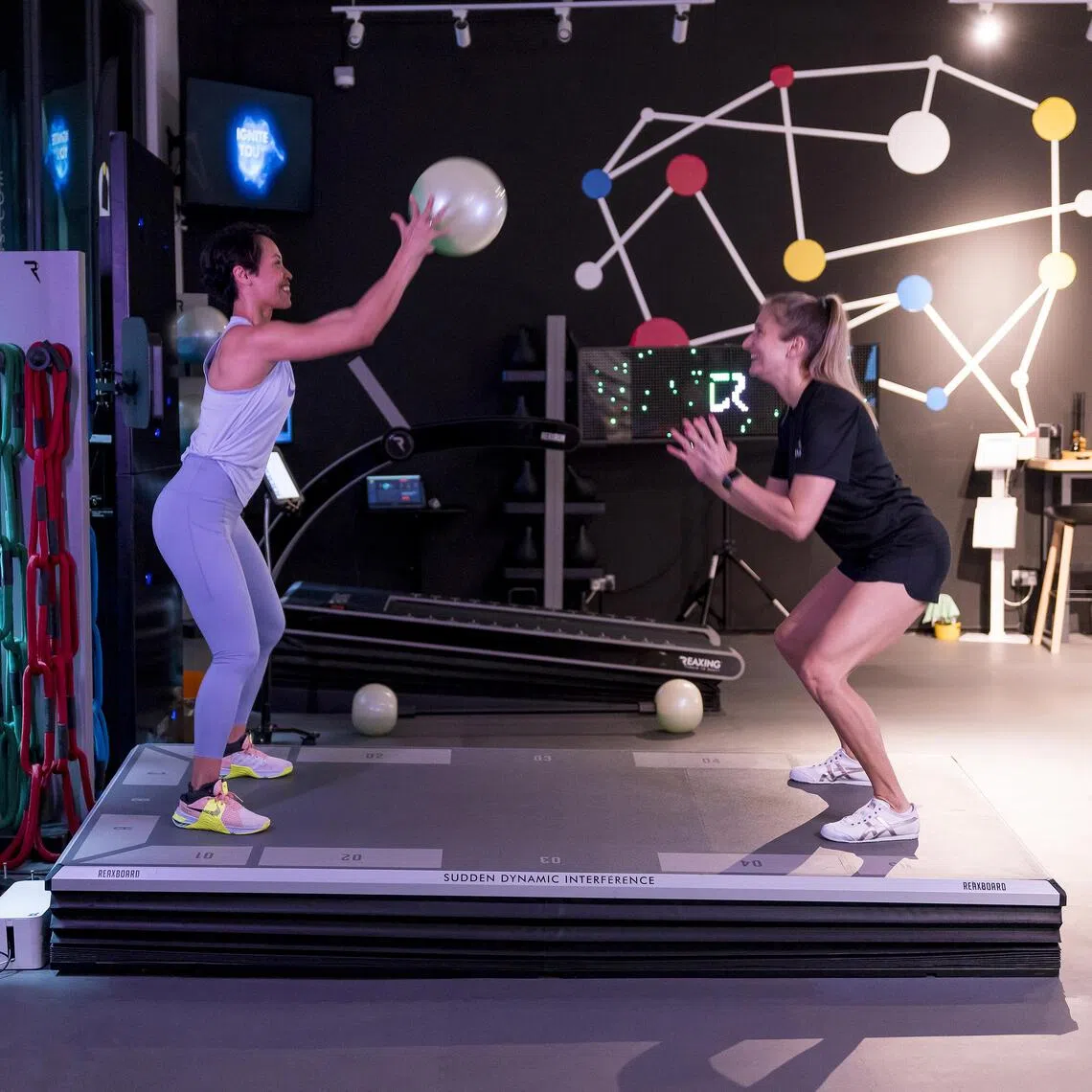
In April 2025, another longevity clinic Eternami is debuting at Kada lifestyle hub, promising an AI-powered approach to track real-time biomarker changes and suggest lifestyle interventions. Unlike traditional clinics that base treatments on static blood tests, Eternami relies on much more frequent data. Its co-founder and digital health researcher Dean Ho says: “Your body changes constantly, so your health plan should evolve with you. What works today might not work next month.”
As a country, Singapore is keeping a sharp eye on the research and developments. When the Budget was unveiled in mid-February, it included a significant 16.3 per cent increase in the Health Ministry’s expenditure, amounting to an additional S$2.9 billion. This boost is partly aimed at enhancing support for our ageing population, ensuring that senior Singaporeans – already among the longest living in the world – receive comprehensive care and support to live their best lives.
From reactive to proactive
Ho notes that the longevity scene is rapidly evolving: “We are moving from reactive healthcare to proactive, data-driven healthspan optimisation. Instead of treating illness after they develop, we can focus on identifying early biomarkers, personalising interventions, and optimising health to prevent disease before it starts.”
But though the market is burgeoning, critics caution against treatments that are marketed as ways to enhance vitality and reverse ageing, but whose efficacy remains a subject of ongoing research.
Stem cell treatments promising to slow down ageing, for instance, were previously offered at about S$30,000 annually by longevity clinic Regenosis at Ngee Ann City. As strict Singapore regulations prevent the treatment from being administered here, clients had to go across the Causeway to get their injections. The clinic has closed and its social media accounts are inactive.

Meanwhile, other private facilities are thriving, shaping Singapore’s anti-ageing landscape with their different approaches to extending health span and optimising longevity.
We look at four of them.
Chi Longevity: On an expansion path
Chi Longevity is one of the more established players in the market. Using a science-backed approach, it evaluates biological, clinical, digital, and psychosocial factors to provide a comprehensive health report. This is followed by a tailored intervention plan with specific goals and recommendations developed by a multidisciplinary team of doctors, psychologists, and dietitians. These plans may include guidance on exercise, sleep, and other lifestyle factors. Clients can also opt for biweekly follow-ups to track progress, fine-tune their programme, and receive ongoing support.
Chi Longevity’s Vital Start programme serves as its foundational health optimisation package, offering a deep dive into biological age, metabolic health, and cardiovascular fitness. Through comprehensive assessments including blood and urine tests, cognitive evaluations, and body composition analysis, clients receive data-driven insights that help them make proactive choices for long-term well-being.
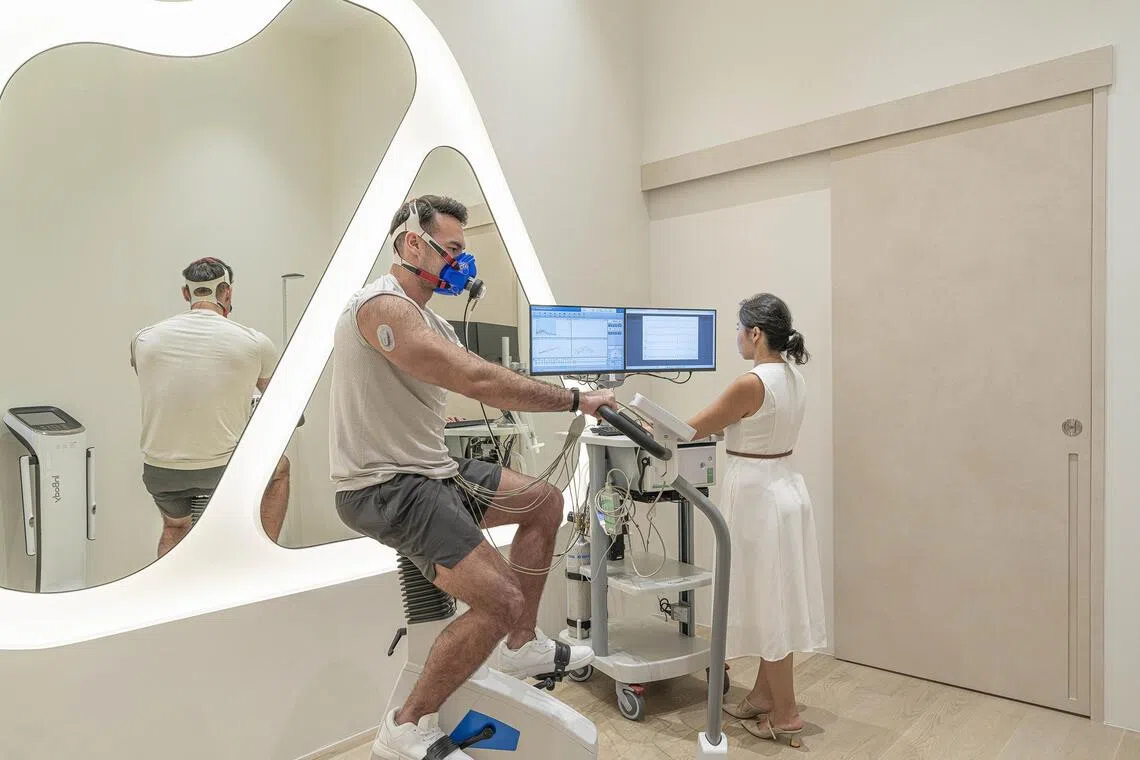
“Health is not just a snapshot. It needs to be a long-term sustained programme,” says co-founder Lindsay Cooper. “We want to get the very best view of the individual through our diagnostics and the very best interpretation of those results.” The clinic measures progress through regular re-testing, aiming to bring clients to an “optimal level” of health markers.
While Chi Longevity primarily serves locals, it has also attracted interest from visitors from China, India, and the Middle East, reflecting a growing global demand for longevity services.
According to Cooper, interest in longevity clinics is rising, particularly as the gap between health span (the years lived in good health) and lifespan becomes more apparent. Most clients fall between 35 and 60 years old, seeking solutions as they begin to notice the effects of ageing on themselves and their families – although there is also a growing interest among clients as young as 20.
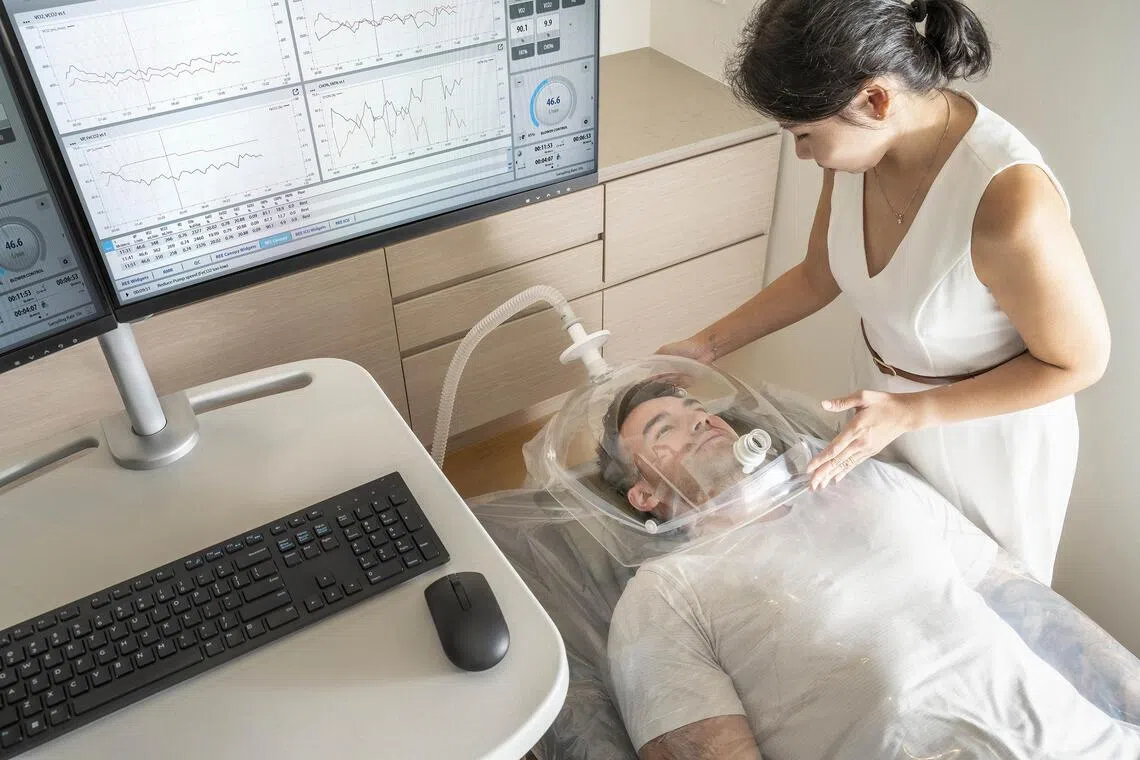
As excitement around longevity science grows, so do the risks associated with unproven treatments. “We absolutely caution people to be sure that they are in safe medical hands where the treatments recommended are both effective and proven to be safe,” says Cooper.
For example, despite the popularity of stem cell treatments, Chi Longevity does not offer them as they have yet to establish testing protocols that ensure ethical and safe application.
Prof Andrea Maier, co-founder of Chi Longevity and an expert in longevity research, plays a key role in advising the clinic on evidence-based interventions, ensuring that all treatments are backed by science. Notably, Maier appeared in Netflix’s Don’t Die: The Man Who Wants to Live Forever, a documentary following billionaire Bryan Johnson’s pursuit of an extended lifespan.
Prices of treatments start from S$1,800. Visit chilongevity.com
Eternami: Leveraging AI for real-time data
Set to open in April 2025, Eternami is the latest player in the market, differentiating itself with the use of artificial intelligence to personalise health optimisation in real time. “Personalisation isn’t just about collecting data – it’s about collecting the right data and knowing what to do with it,” says co-founder and digital health researcher Dean Ho. “Your body changes constantly, so your health plan should evolve with you. That’s what makes Eternami different.”
Unlike some that rely on large-scale population data, Ho and his team take a different approach. “If you take a single snapshot of someone’s biomarkers, you’re missing the full picture,” he explains. “People are dynamic. What works today might not work next month. We use AI to track real-time biomarker changes and adjust interventions accordingly.”
This AI-driven system identifies patterns in metabolism, sleep, and fitness, optimising interventions in weeks rather than years. Instead of relying on conventional methods that require vast data sets, Eternami’s algorithms work with small but high-quality data samples, allowing for hyper-personalised treatment. “Big data is useful, but your health is personal,” Ho says. “We don’t just collect more data; we collect better data.”
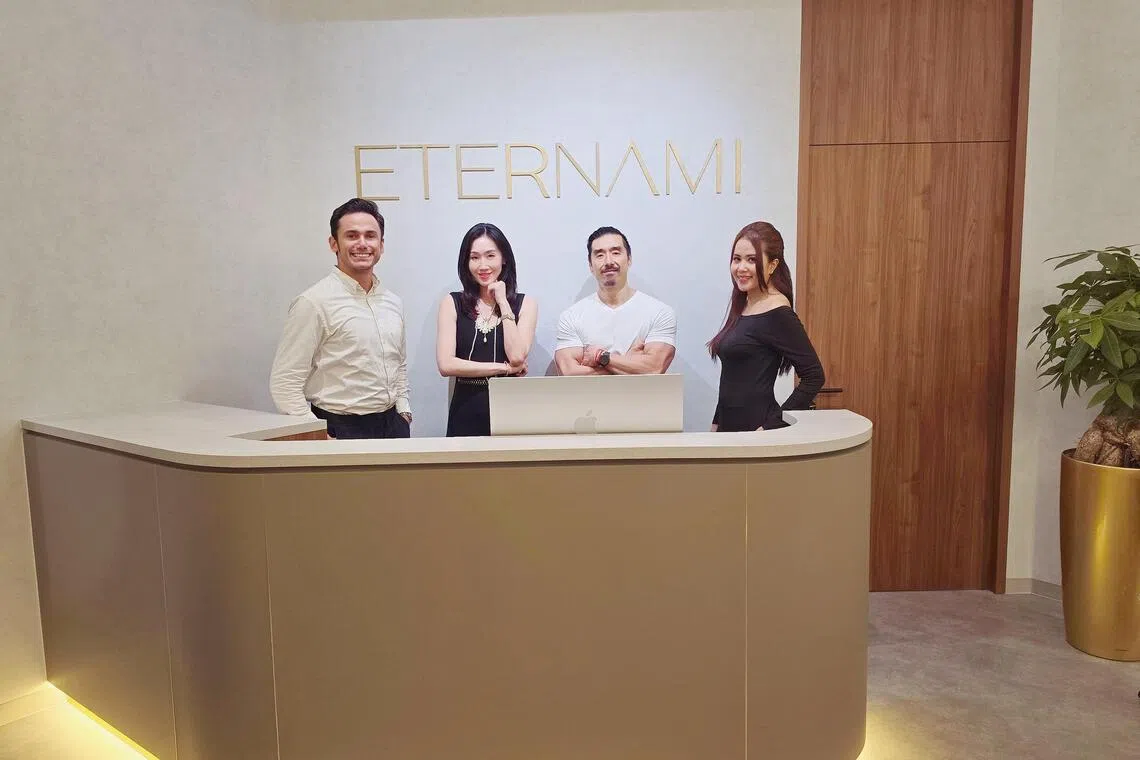
Eternami subsequently curates a fully integrated lifestyle approach, partnering with fitness trainers, nutritionists, and even restaurants to provide real-world solutions. “Longevity isn’t about forcing people into extreme routines,” says fellow co-founder Veronika Linardi. “It’s about making sustainable, smart decisions that fit their lifestyle.”
Like Bespoke Fitness, Eternami’s approach is backed by firsthand experience. Ho himself underwent a self-experiment, systematically tracking his blood biomarkers under different conditions to refine the clinic’s protocols. “I didn’t just collect my data – I experimented on myself,” he explains. “By modifying fasting, fitness, and sleep based on real-time biomarkers, I optimised my metabolism in ways traditional methods couldn’t.”
This research, which was peer-reviewed and published in a leading medical journal, underscores Eternami’s belief in evidence-driven care.
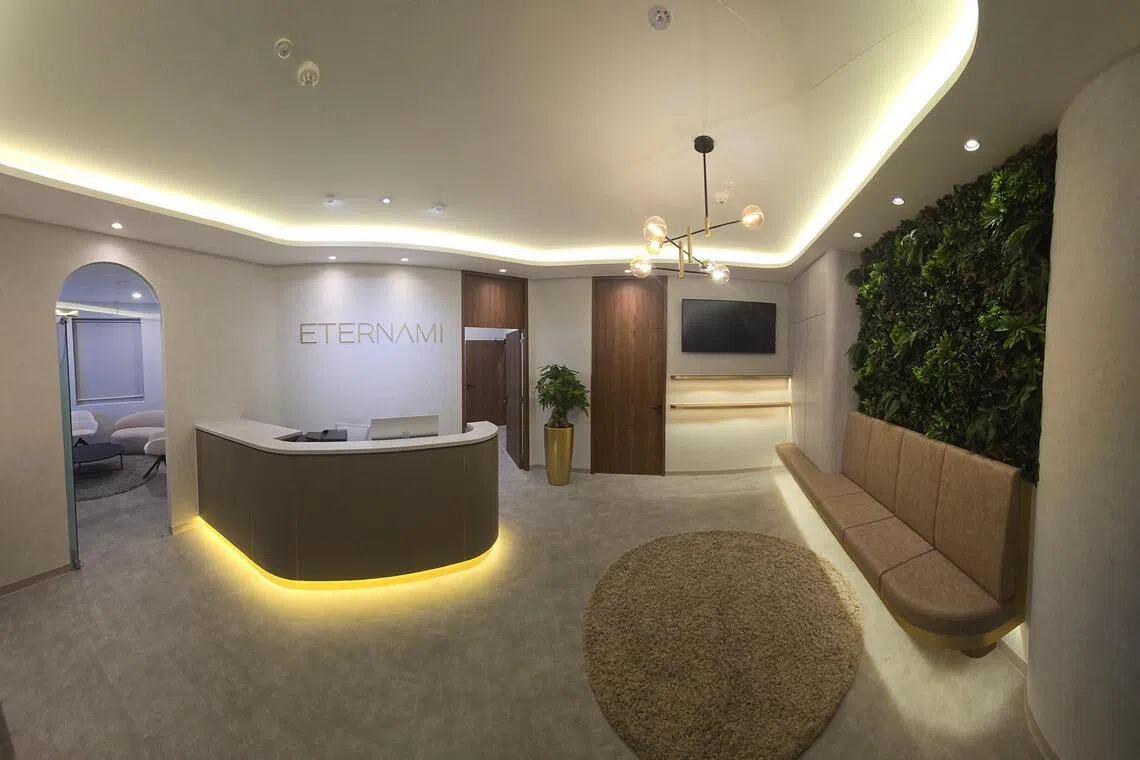
While AI is a crucial part of Eternami’s methodology, the clinic insists on maintaining a human touch. Every AI-driven recommendation is reviewed by medical professionals to ensure safety and efficacy. “You can’t just give everyone a fixed dose of supplements and expect the same results,” Ho says. “Our system adjusts doses based on how an individual’s biomarkers fluctuate, ensuring the most effective interventions.”
Eternami also challenges common misconceptions about longevity. “People think longevity is about taking endless supplements or spending millions on treatments,” says Ho. “But it’s really about making small, consistent choices. The difference between living longer and living better is how you adjust over time. Adjusting your diet, tweaking your sleep routine, even modifying exercise intensity – all of these things impact longevity, and our system helps you navigate that.”
Eternami is set to open in April 2025 at lifestyle hub Kada. Prices will be unveiled then. Visit eternami.com
Bespoke Fitness: 50 is the new 30
Bespoke Fitness might be mistaken as just another gym-clinic if not for its co-founder Lim Tiat, who calls himself “Singapore’s Benjamin Button”. At 53, he has successfully “de-aged” himself to the point that biomarker tests gauge his biological age at around 32 – a whopping 21 years lower than his real age.
Though smaller than most of its rivals, the gym-clinic has been successful in drawing clients who want more than just weight loss or muscle gain. They seek a bona fide transformation – a passport to living healthier and longer, and with the sort of vibrant energy that defies the calendar.
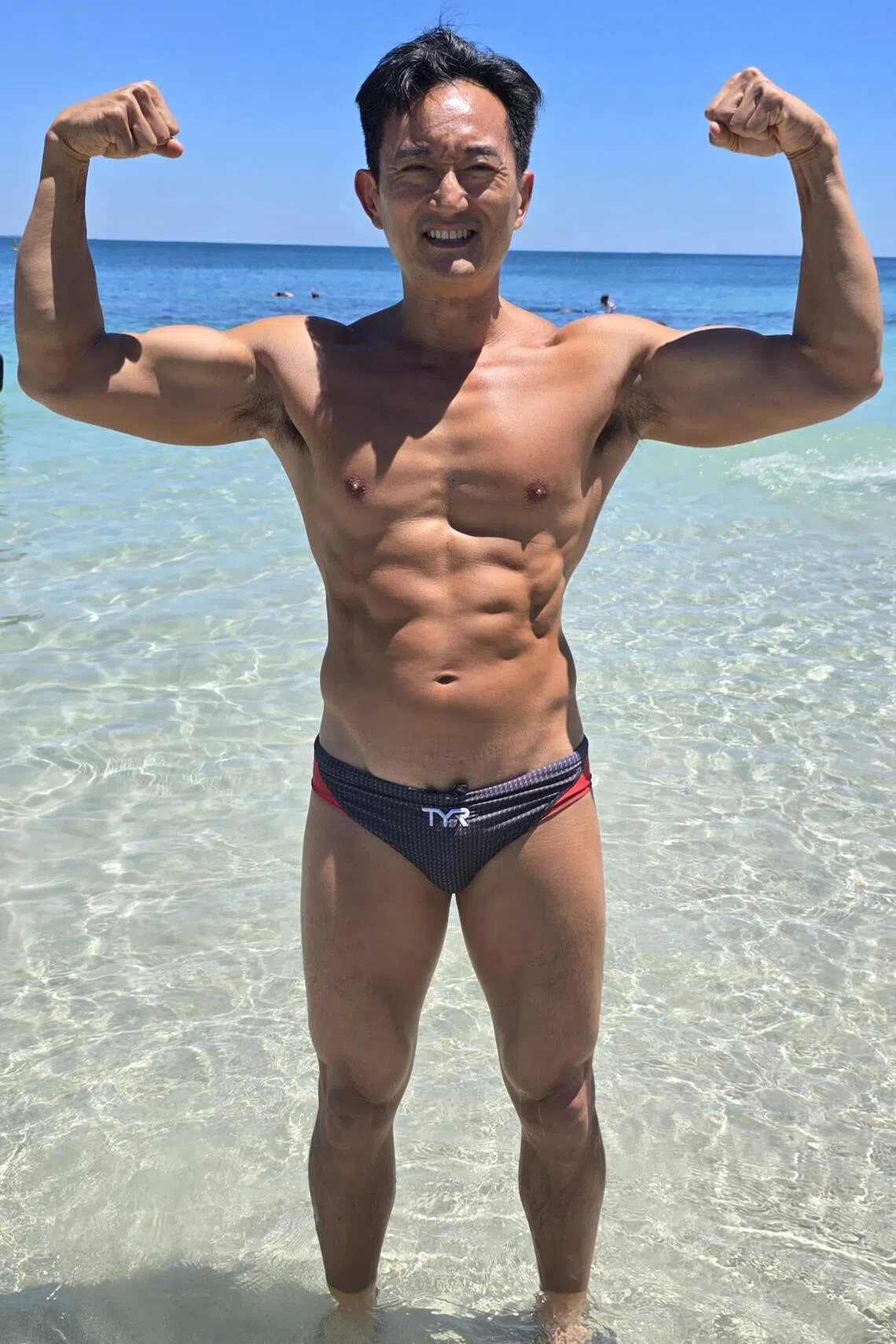
“Anybody can do what I do,” Lim insists. “But it requires dedication: six days a week, three hours a session.” Discipline is a credo he returns to often. His trademark frankness comes through as a lively counterpoint to the array of theoretical “fountains of youth” flooding the global wellness scene. Lim’s approach is grounded in the unglamorous basics: rigorous fitness, targeted nutrition, and deep, restorative sleep.
He’s distilled these into a neat formula that’s as simple as it is demanding. “Think of it as building a house,” he says. “The foundation is fitness, the walls are nutrition, and the roof is sleep.”
Six days a week, you’ll find Lim and a dedicated cohort powering through high-intensity group classes – bespoke workouts called “FitRx” – in which a rotating programme ensures no two days are the same. “We have at least five years’ worth of programming already. That’s 365 different workouts a year. You won’t get bored, and you’ll hit all the bases: stability, speed, strength, stamina, and shape.”
Bespoke Fitness, which Lim runs together with his sister, has evolved from a mere boutique gym into a kind of holistic “gym-clinic”. It has partnered with a family physician, sports orthopaedic experts, and external labs to conduct thorough biomarker testing. “We’re combining the best of a gym and a clinic,” he says.
That synergy is central to their clinical study ambitions, particularly in the global XPRIZE HealthSpan competition. “We’re one of the quarter-finalists,” he shares. “We want to prove that in six months, we can make our study participants five years younger. And in 12 months, 10 years younger. That’s the vision.”
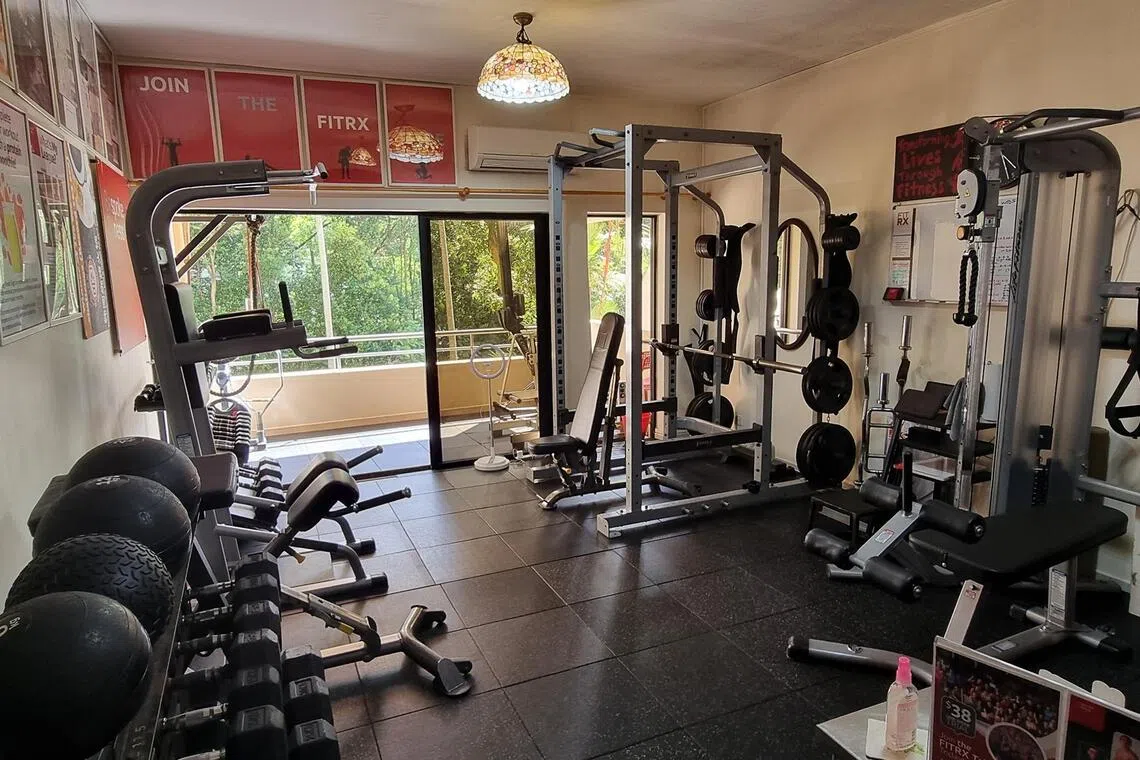
Nutrition, he’ll remind you, is the other half of the puzzle. “You can’t out-exercise poor nutrition,” Lim says. He prescribes “BERP” (the Bespoke Eat Right Programme), built on the simple rule of avoiding SOAP – sugar, oil, additives, and processed foods.
While the longevity industry has exploded in recent years – offering everything from stem-cell therapies to supposed youth-restoring infusions – Lim is openly sceptical. He calls out the “longevity hustlers” who shun actual data while making grand promises. What grounds him is his willingness to walk the walk. “I only listen to practitioners who can show me the biomarkers,” he says. “People talk theory; I talk practice.”
That, in the end, is exactly what sets Bespoke Fitness apart: not the glitzy decor or the hype around the next silver-bullet solution, but a methodical insistence on combining sweat, science, and a heartfelt determination to reframe ageing as an empowering journey.
Membership for Bespoke Fitness starts at around S$259 a month. Visit bespokefitness.fit and deaging.guru
O2genes: Pure oxygen treatments
Hyperbaric oxygen therapy (HBOT) has gained interest as a potential way to slow down ageing and even reversing certain biomarkers of ageing, especially in relation to telomere length and cellular repair. It’s attracted high-profile clients such as LeBron James and Cristiano Ronaldo, who use HBOT to aid their recovery and performance.
By breathing 100 per cent pure oxygen in a pressurised chamber (higher than atmospheric pressure), HBOT increases oxygen delivery to tissues and cells, thereby stimulating stem cell production for regeneration, promoting energy production and reducing inflammation, among other benefits. Although it has its share of critics and sceptics, it’s been approved by the US Food And Drug Administration in the treatment of certain conditions such as non-healing wounds and anaemia.
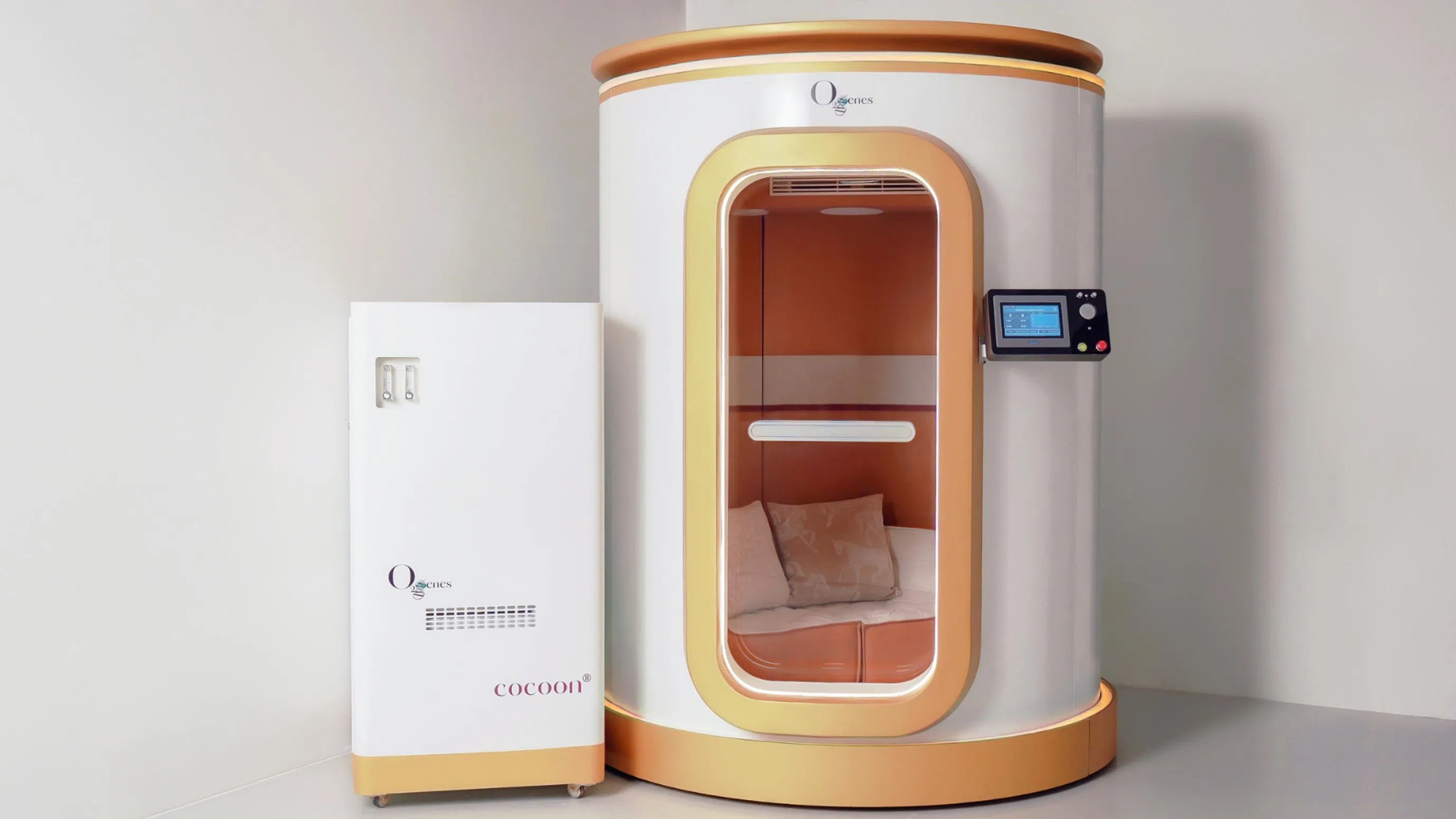
In Singapore, hyperbaric oxygen therapy is offered by longevity and wellness clinics such as O2genes, whose “approach to assessing and monitoring the effectiveness of therapy is tailored to our clients’ unique needs and goals”, says Dr Josh Lim, founder of O2genes.
Its Elixir Hyperbaric Oxygen Cocoon incorporates features such as aromatherapy and an entertainment system, alongside advanced Air-Break Protocol Technology, designed to alternate between oxygen-rich and oxygen-deprived environments to prevent oxygen toxicity. O2genes also integrates infrared red light therapy with hyperbaric oxygen therapy, a combination that is said to reduce inflammation and boost cellular energy.
“This innovation was inspired by the fast-paced, busy lifestyles of Singaporeans,” says Dr Lim.
O2genes recently collaborated with Soma Haus on a three-month sleep study, where over 90 per cent of participants reported improved sleep quality after undergoing hyperbaric oxygen therapy. The hyperbaric oxygen therapy client base at O2genes is diverse, with about 50 per cent using the therapy for longevity and the other half seeking targeted benefits such as recovery, cognitive enhancement, and sleep improvement.
However, as with any wellness treatment, clients are advised on potential risks and contraindications before starting therapy. Emphasising the “wellness purposes” of these services, Dr Lim clarifies that hyperbaric oxygen therapy should not be a substitute for medical treatment and advises users to seek professional medical advice if they have health concerns.
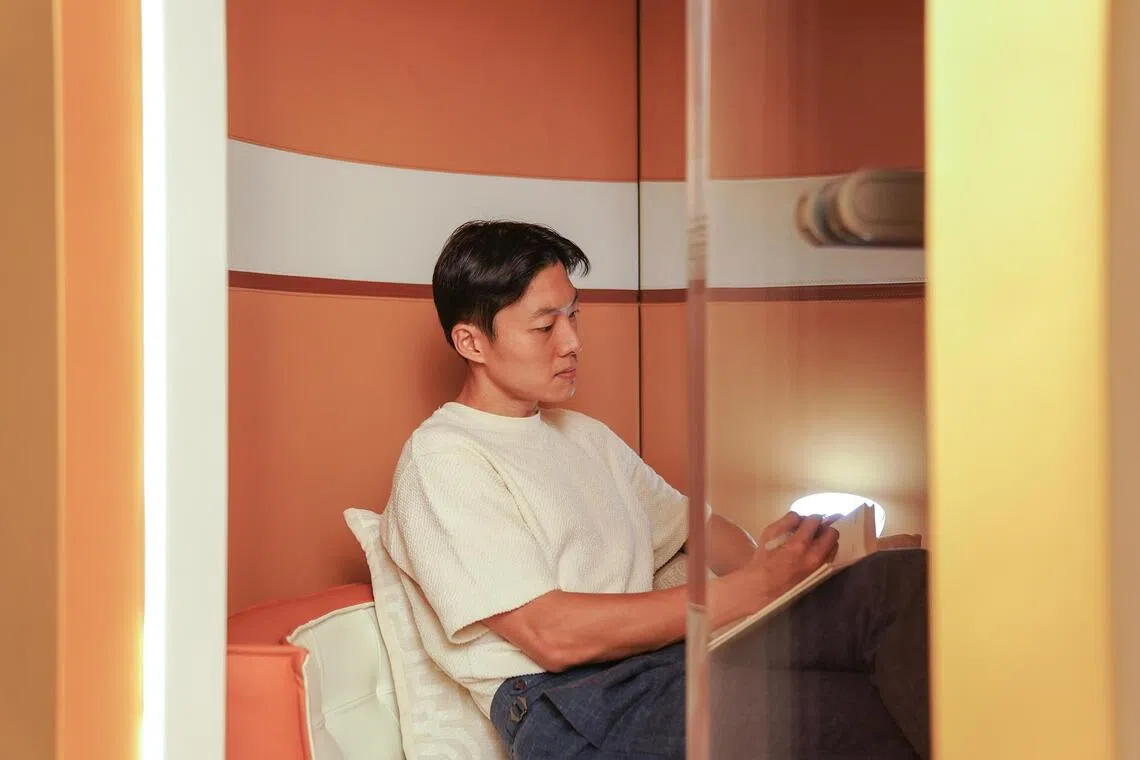
Sessions are available at O2genes’ showroom office as well as at partnered clinics including Asia Longevity Clinic and The Clifford Clinic. Hyperbaric Oxygen Therapy sessions start from S$298 per session for a one-hour and 2.0 ata (where oxygen is delivered at twice the pressure we normally experience). For home users, the company also offers Soft Shell Hyperbaric Oxygen Cocoon from S$3,380 per month. Visit o2genes.com
Decoding Asia newsletter: your guide to navigating Asia in a new global order. Sign up here to get Decoding Asia newsletter. Delivered to your inbox. Free.
Copyright SPH Media. All rights reserved.



